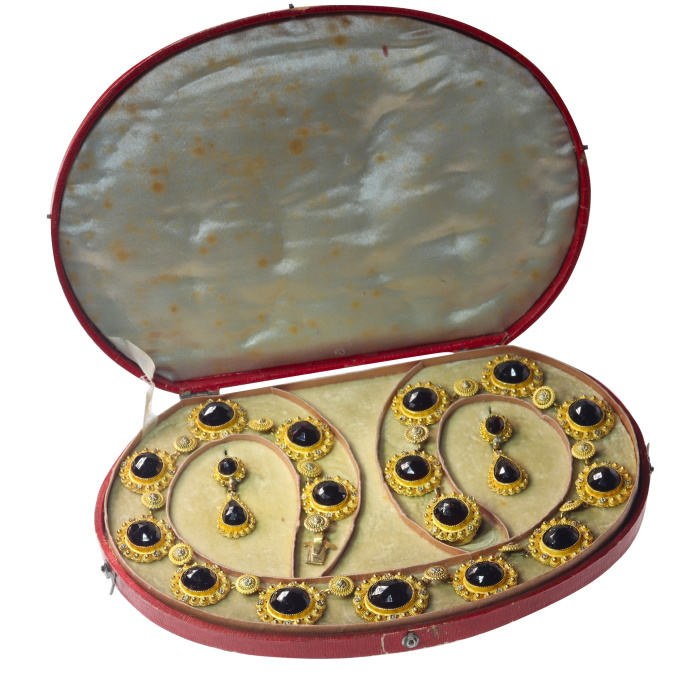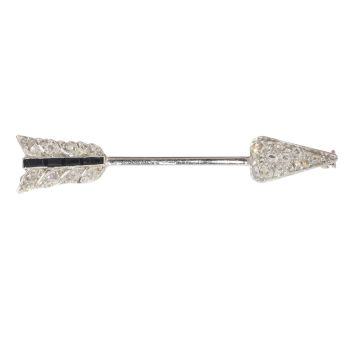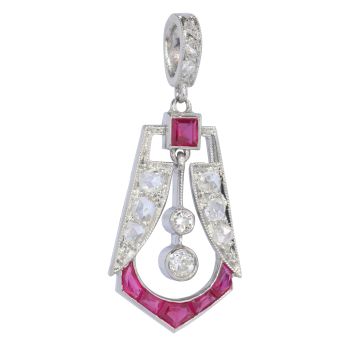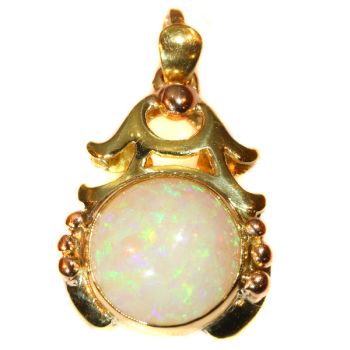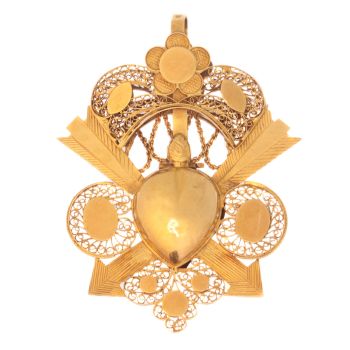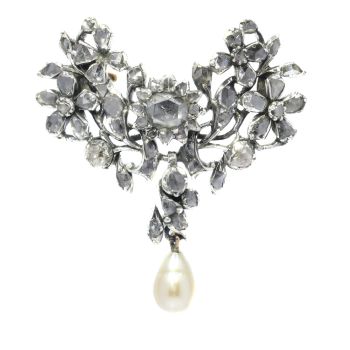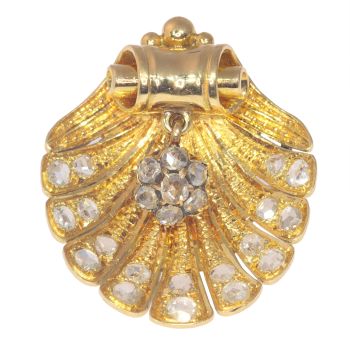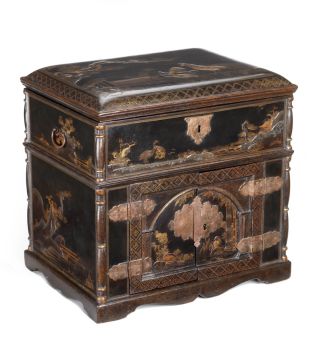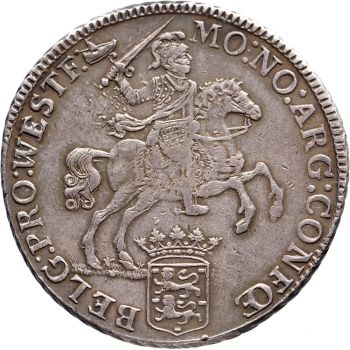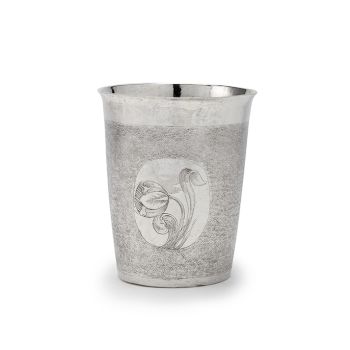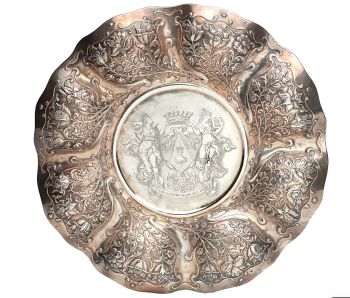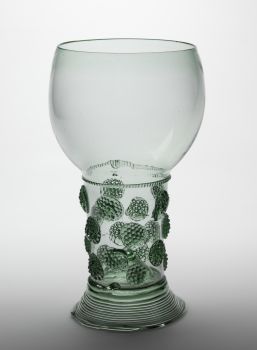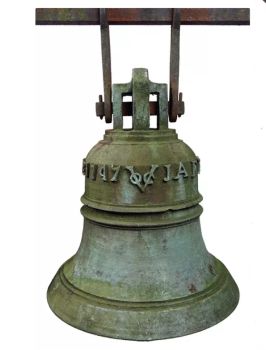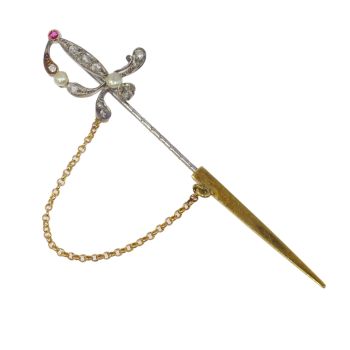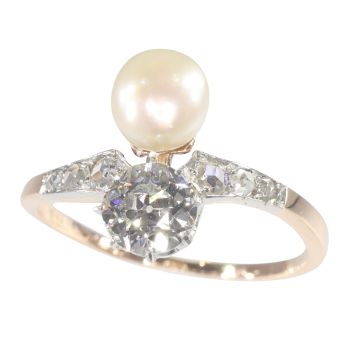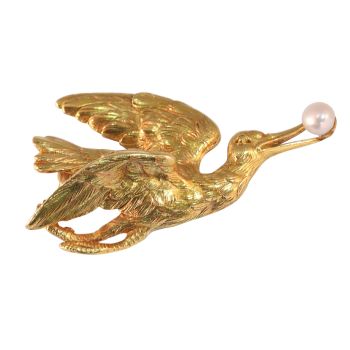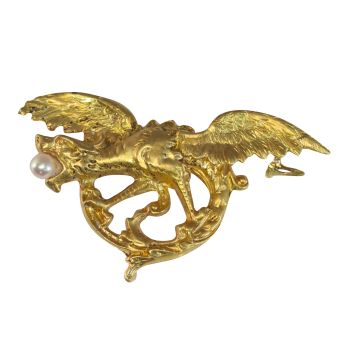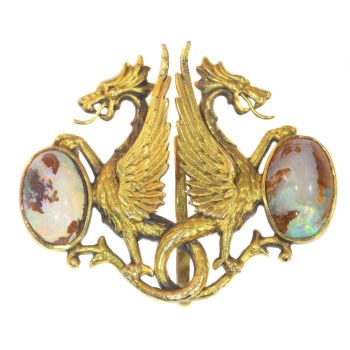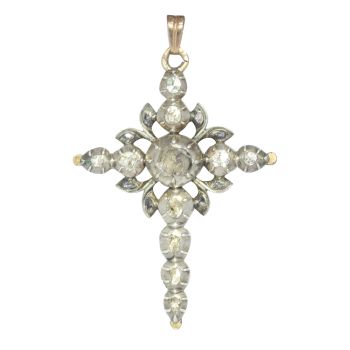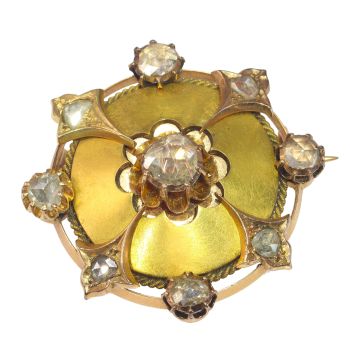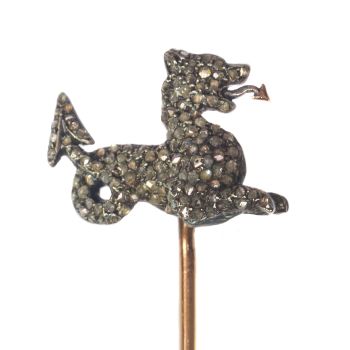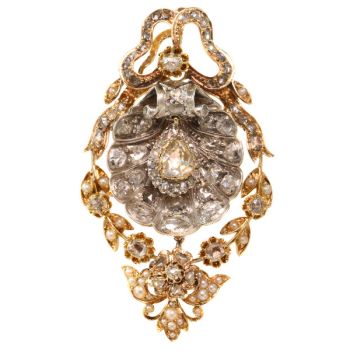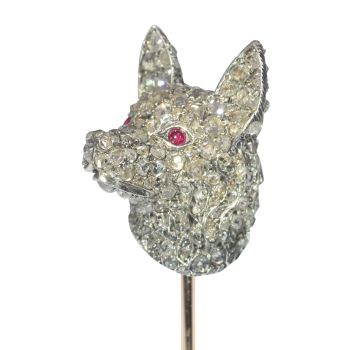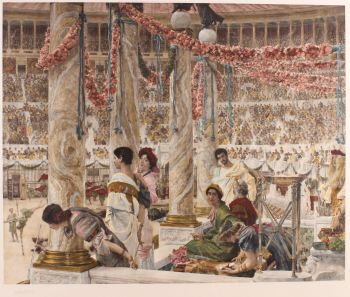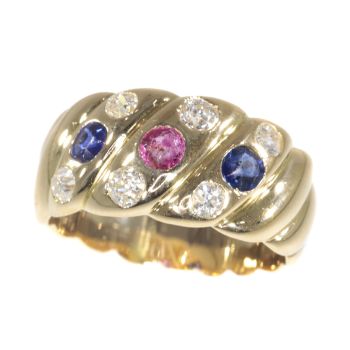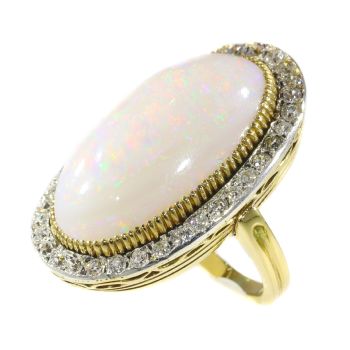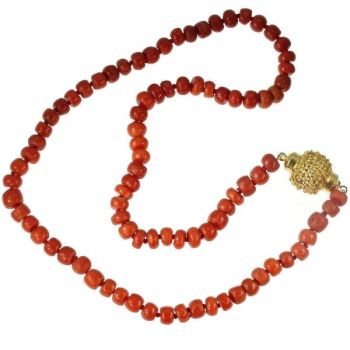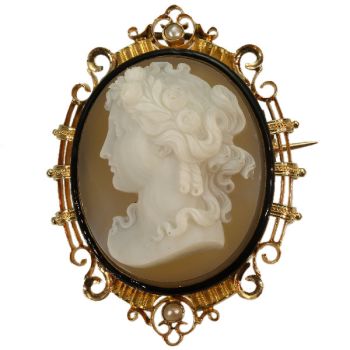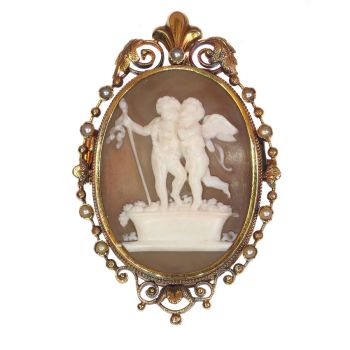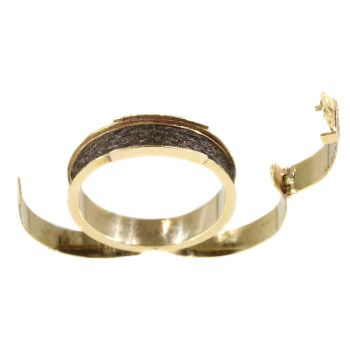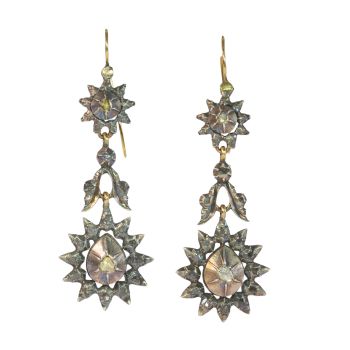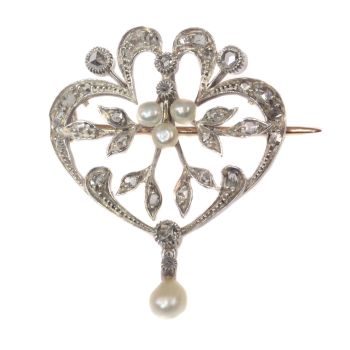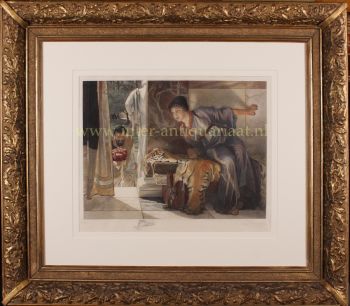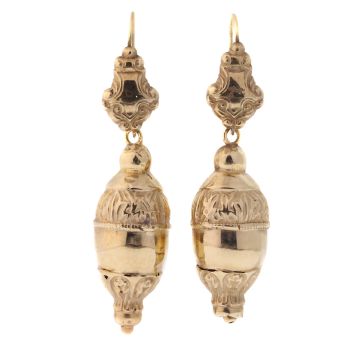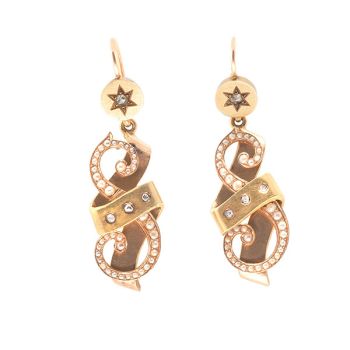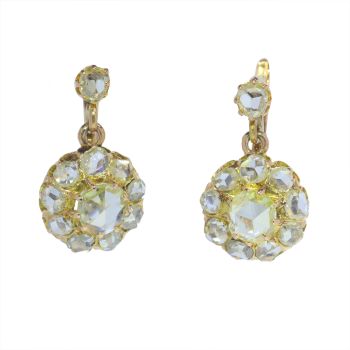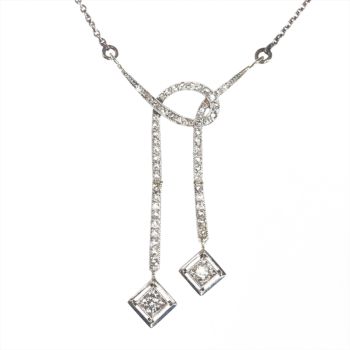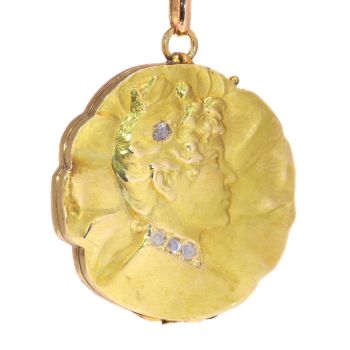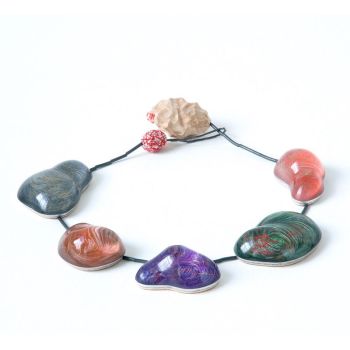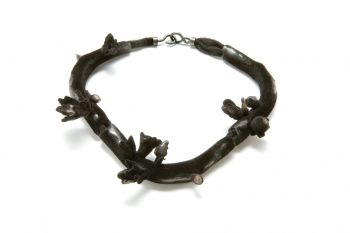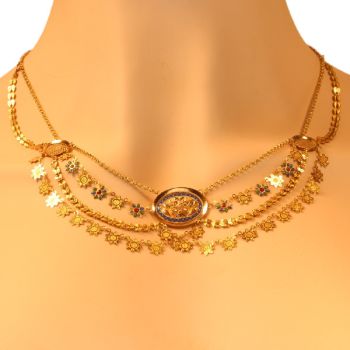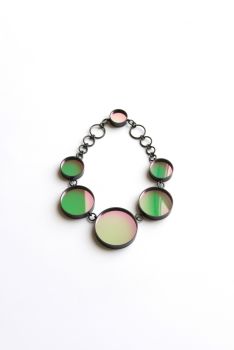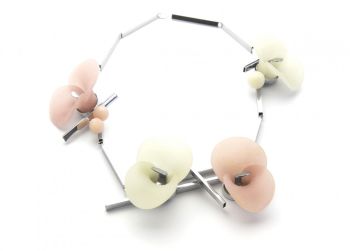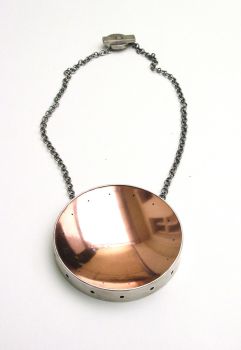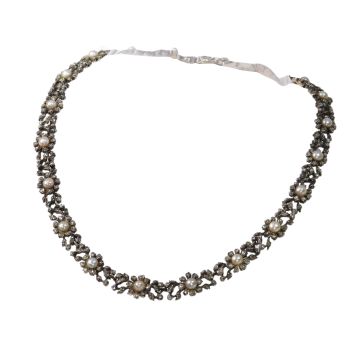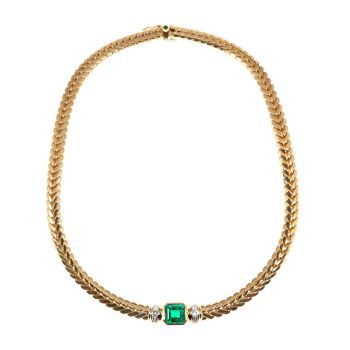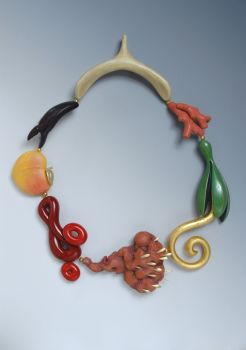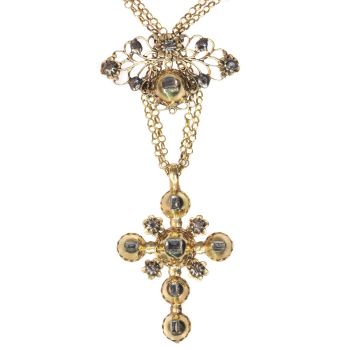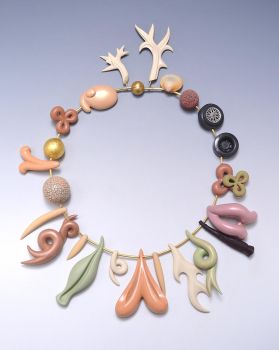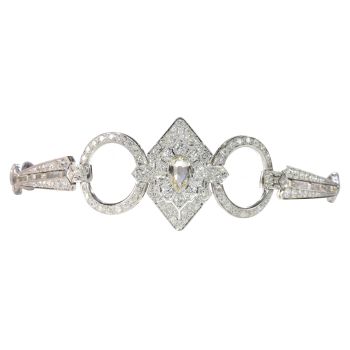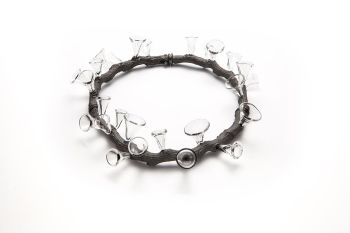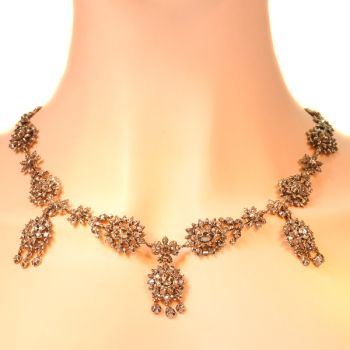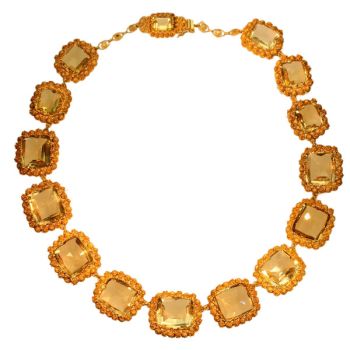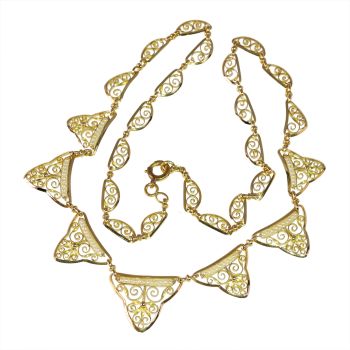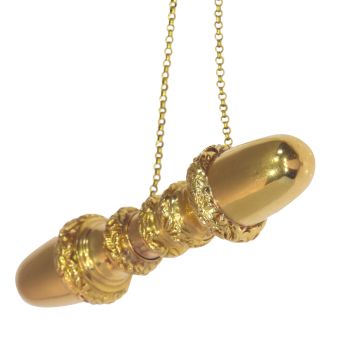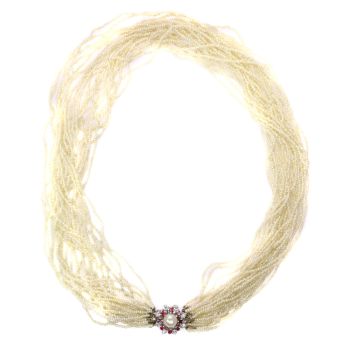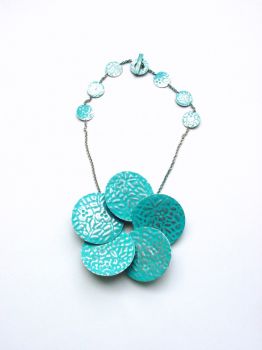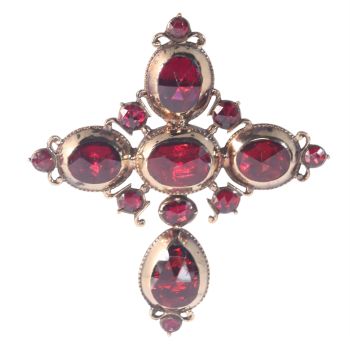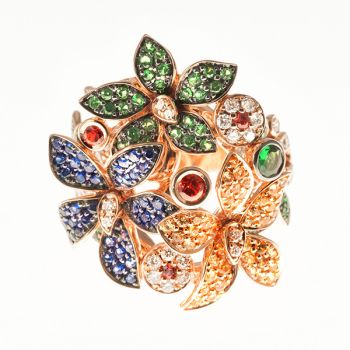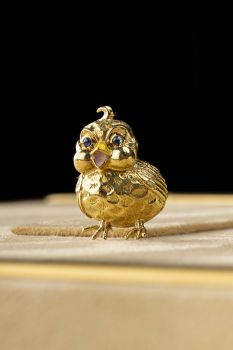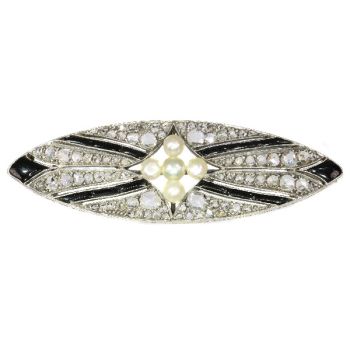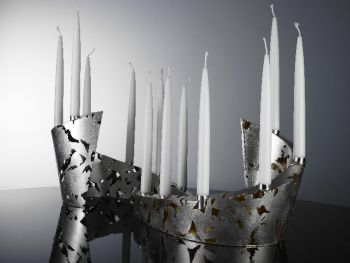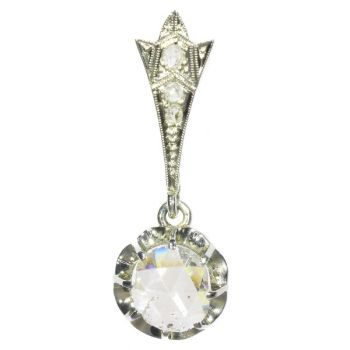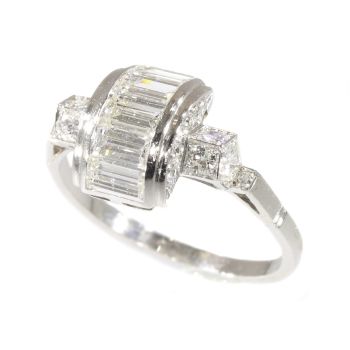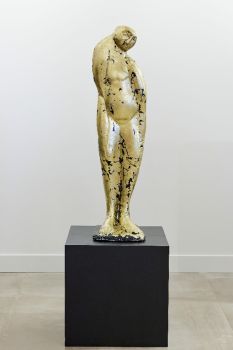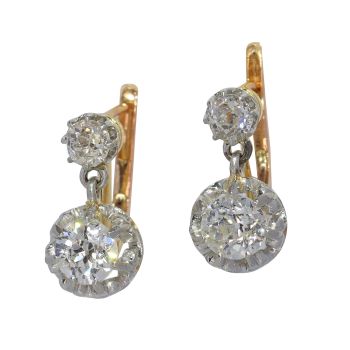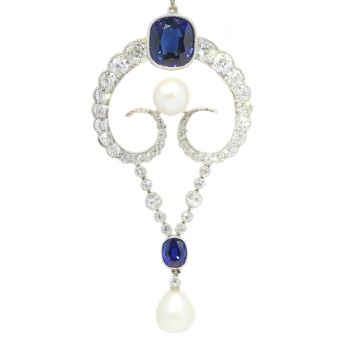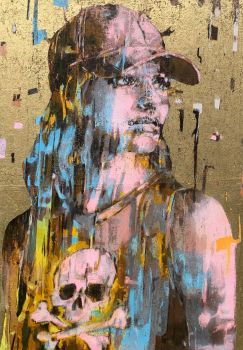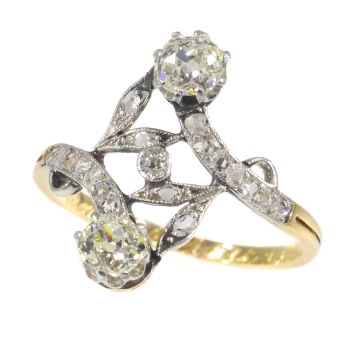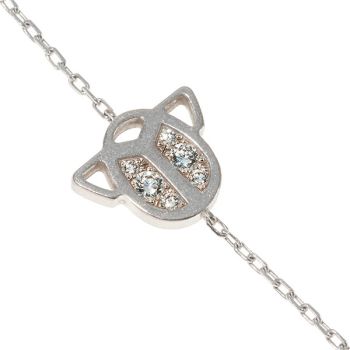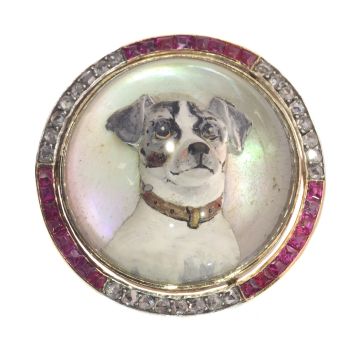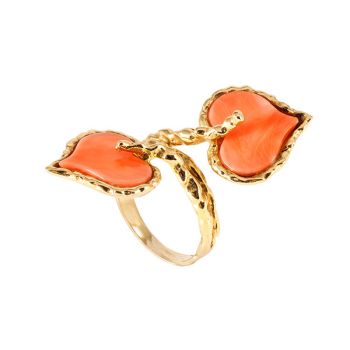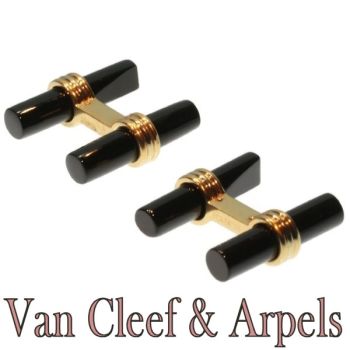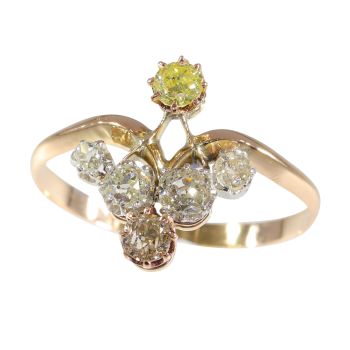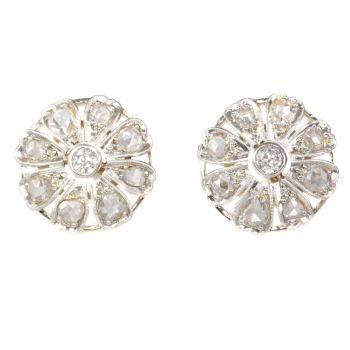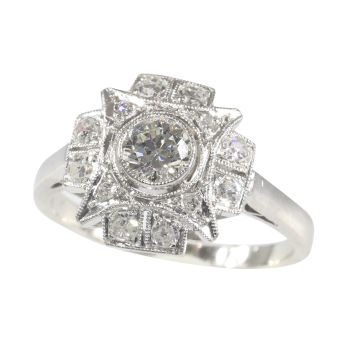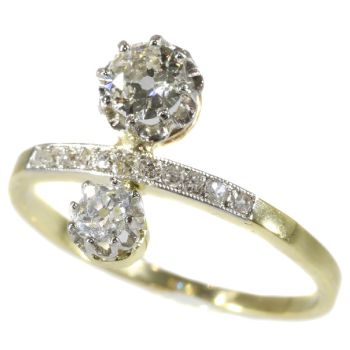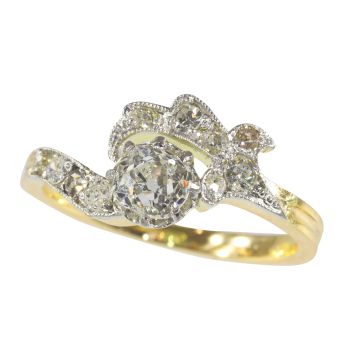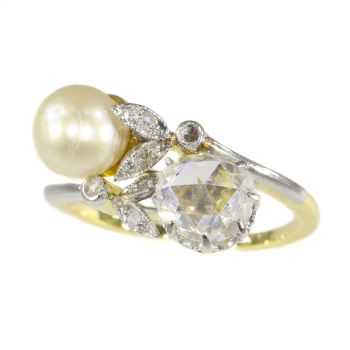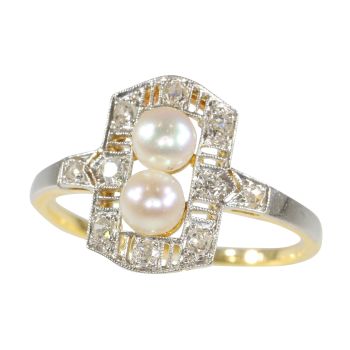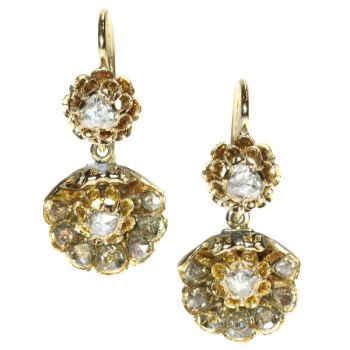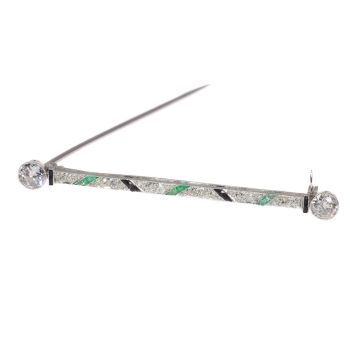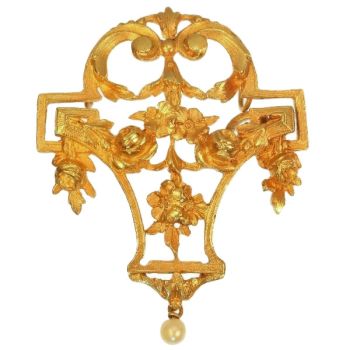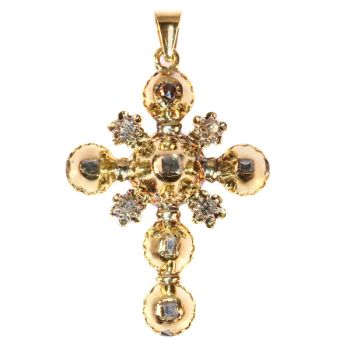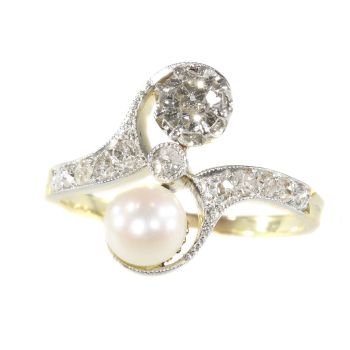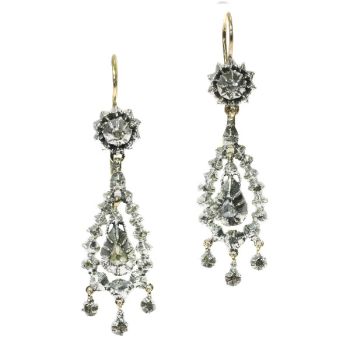Victorian gilded garnet parure matching necklace and earrings in original box 1860
Artiste Inconnu
Adin Fine Antique Jewellery
- Sur l'oeuvre d'art
Antique jewelry object group
parure (matching set of jewellery)
Condition
good condition (some not directly obvious traces of old repairs)
more info on our condition scale
Country of origin
unknown
Style
Victorian - Victorian decorative arts refers to the style of decorative arts during the Victorian era. The Victorian era is known for its eclectic revival and interpretation of historic styles and the introduction of cross-cultural influences from themiddle east and Asia in furniture, fittings, and Interior decoration. Victorian design is widely viewed as having indulged in a regrettable excess of ornament. The Arts and Crafts movement, the aesthetic movement, Anglo-Japanese style, and Art Nouveaustyle have their beginnings in the late Victorian era.
See also: Victorian
more info on styles
Style specifics
The Romantic Victorian Period - Experts divide the reign of Queen Victoria, also called The Victorian era (1837 - 1901) in to three periods of about twenty years each; The Romantic Victorian Period (1837 - 1860), The Grand Victorian Period (1860 -1880), and the Late or Aesthetic Victorian Period (1880 - 1901).
We consider this to be of the Romantic Victorian Period. This period covers the coronation of Victoria as Queen of Great Britain and Ireland, and her marriage to King Albert and their love, their devotion to their marriage and to their country are thesources of inspiration for this period. The jewels of this period are made of intricate carvings, special techniques where the enamel is subtly worked. These techniques allowed to give the jewel a certain opulence with less precious metal needed. Asprecious metals were really rare at that time. Highly favored (semi-) precious stones in this period are amethyst, coral, garnets, seed pearls and turquoises. The connotation is obviously sentimental, symbolic and romantic with reminiscent Gotic and/orRenaissance patterns and an abundant use of motifs like anchors, birds, branches, crosses, hearts and snakes.
Period
ca. 1860
Events & facts of this era, poetry of this era, fashion of this era.
Material
Gilded base metal (touchstone tested)
more info on precious metals
Technique
Filigree (formerly written filigrann or filigrane) is a delicate kind of jewel work made with twisted threads usually of gold and silver or stitching of the same curving motifs. It often suggests lace and French from 1660 to the late 19th century. Itshould not be confused with ajoure jewellery work; while both have many open areas, filigree involves threads being soldered together to form an object and ajoure involves holes being punched, drilled, or cut through an existing piece of metal. (from: Wikipedia)
Precious stones
20 garnets
Birthstones
Garnet is the birthstone (or month stone) for January.
more info on birthstones
Hallmarks
No trace.
more info on hallmarks
Dimensions
length necklace 51,50 cm (20,28 inch), height earrings 4,00 cm (1,57 inch)
see picture with a ruler in millimeters and inches
Weight
85,10 gram (54,72 dwt)
Adin Reference Nº
22298-0344
Copyright photography
Adin, fine antique jewellery
Additional information
our latest acquisitions
jewelry glossary
wall of fame
visit us in Antwerp
subscribe to our mailinglist
- Sur l'artiste
Il peut arriver qu'un artiste ou un créateur soit inconnu.
Certaines œuvres ne doivent pas être déterminées par qui elles sont faites ou elles sont faites par (un groupe d') artisans. Les exemples sont des statues de l'Antiquité, des meubles, des miroirs ou des signatures qui ne sont pas claires ou lisibles, mais aussi certaines œuvres ne sont pas signées du tout.
Vous pouvez également trouver la description suivante :
•"Attribué à …." A leur avis probablement une oeuvre de l'artiste, au moins en partie
•« Atelier de …. ou « Atelier de » À leur avis, une œuvre exécutée dans l'atelier ou l'atelier de l'artiste, éventuellement sous sa direction
•« Cercle de… ». A leur avis une oeuvre de la période de l'artiste témoignant de son influence, étroitement associée à l'artiste mais pas forcément son élève
•« Style de … ». ou "Suiveur de ...." Selon eux, une œuvre exécutée dans le style de l'artiste mais pas nécessairement par un élève ; peut être contemporain ou presque contemporain
•« Manière de… ». A leur avis une oeuvre dans le style de l'artiste mais d'une date plus tardive
•"Après …." A leur avis une copie (quelle qu'en soit la date) d'une oeuvre de l'artiste
•« Signé… », « Daté… ». ou « Inscrit » À leur avis, l'œuvre a été signée/datée/inscrite par l'artiste. L'ajout d'un point d'interrogation indique un élément de doute
• "Avec signature ….", "Avec date ….", "Avec inscription …." ou "Porte signature/date/inscription" à leur avis la signature/date/inscription a été ajoutée par quelqu'un d'autre que l'artiste
Êtes-vous intéressé par l'achat de cette oeuvre?
Artwork details
Related artworks
Artiste Inconnu
Bécher hollandais en argent XVIIe siècle1653 - 1677
Prix sur demandeJacob J. Roosjen SRI
Artiste Inconnu
UN PLAT EN ARGENT LOBBED INDONÉSIEN INSOLITElate 17th
Prix sur demandeZebregs & Röell - Fine Art - Antiques
Artiste Inconnu
The bell of the VOC fortress in Jaffna, Sri Lanka1747
Prix sur demandeZebregs & Röell - Fine Art - Antiques
 Sélectionné par
Sélectionné parDanny Bree
1 - 4 / 12Lawrence Alma-Tadema
"Caracalla and Geta: Bear Fight in The Colloseum, AD 203" 1907
Prix sur demandeGallerease Selected
 Sélectionné par
Sélectionné parDanny Bree
1 - 4 / 24- 1 - 4 / 24
- 1 - 4 / 24
- 1 - 4 / 12

